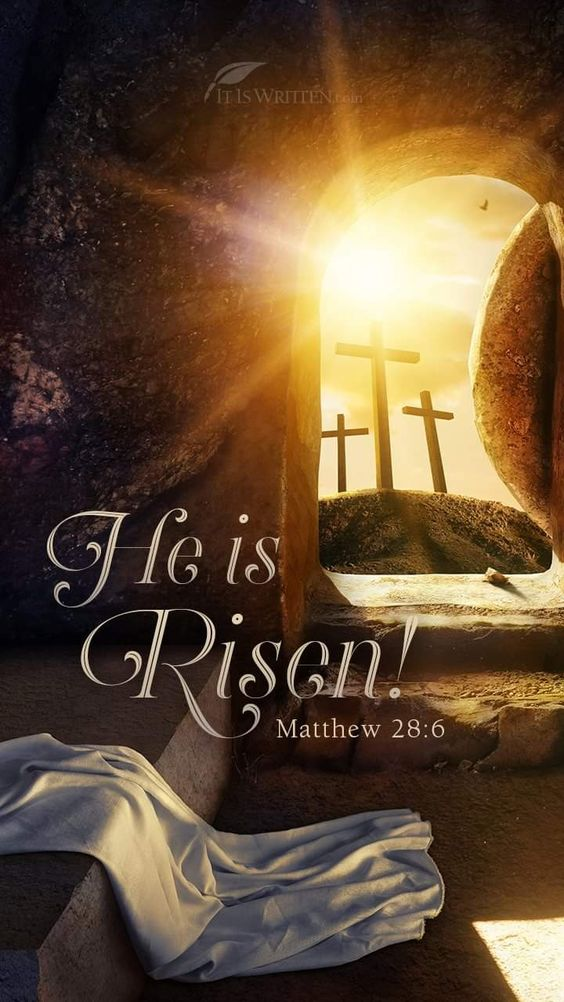MY CHANNEL TALKS ABOUT THE TRUE GOSPEL OF JESUS CHRIST DEATH RESURRECTION AND BURIAL. I DISCUSS THE BIBLE SUBJECTS AND HOW TO APPLY IT INTO YOUR DAILY LIFE. I DISCUSS topics SUCH AS THE MEANING OF PSALMS 23 AND REAL LIFE ISSUES SUCH AS SUICIDE AND CRIME AND VIOLENCE.
Monday, May 13, 2024
Sunday, May 12, 2024
Saturday, May 11, 2024
Thursday, May 9, 2024
PRIDE AND DESTRUCTION
Pride goes before destruction, a haughty spirit before a fall. PROVERBS 16:18
But he gives us more grace. That is why Scripture says: “God opposes the proud but shows favor to the humble.”JAMES 4:6
This is what the LORD says: “Let not the wise boast of their wisdom or the strong boast of their strength or the rich boast of their riches,but let the one who boasts boast about this: that they have the understanding to know me, that I am the LORD, who exercises kindness, justice and righteousness on earth, for in these I delight,” declares the LORD.
BRANDISH MEANING
To brandish something is to wave it about aggressively, as one might brandish a sword or tennis racket (if it's a particularly intense game).
BRANDISH often implies that a person is wielding a physical weapon. In fact, brandish comes from the archaic French word brandir, meaning "sword." However, it’s also possible to brandish objects that aren’t weapons. If you win a bowling tournament, for example, you might be inclined to brandish your shiny new trophy in front of the other competitors. Be careful, though; they might mistake your trophy for a "brandir" and respond accordingly. Draw out also the spear, and stop the way against them that persecute me: say unto my soul, I am thy salvation. PSALMS 35:3
The descendants of Levi will surround the king, brandishing weapons in their hands, and anybody who enters the Temple will be killed. Stay near the king wherever he enters and leaves."2 CHRONICLES 23:7
And I have made many peoples astonished at thee, And their kings are afraid at thee with trembling, In My brandishing My sword before their faces, And they have trembled every moment, Each for his life -- in the day of thy fall. EZEK. 32:10
FINAL AUTHORITY IN LIFE
From a theological perspective the fourth use of authority is most significant. The question of authority is a fundamental issue facing every person, especially the believer. Its significance cannot be overestimated. Every person has an authority in life that he or she submits to as a subordinate, not by constraint but by conviction. Furthermore, God has created human beings to live under his authority. When they choose to live under a different rule, that of self or an idol, they sin. This is, in a simple summary, the teaching of Genesis 1-3. That portion of Scripture illustrates the human tendency, moved by pride, to seek independence from external authority and to establish self as the final authority in life.
How, then, does God exercise his authority over creation and his creatures? The testimony of Scripture is that God has established three fundamental spheres of authority within which he delegates authority to individuals. These spheres are civil government, the home, and the church. The believer is obliged to obey those holding authority in those realms. Citizens are to submit to the governing authorities ( 1 Pe 2:13-14 ). Children are to obey parents ( Eph 6:1-2 ). Believers were to honor spiritual authorities such as apostles who demanded compliance on the basis of their commission from the Lord. There are exceptions. When a person in authority violates the trust granted by God, the source of all authority, the subordinate is free, indeed mandated, "to obey God rather than man" ( Acts 5:29 ). The apostle Peter provides the clearest example of what is called civil disobedience. In his epistle he encourages disciples of Christ to submit to governing authorities ( 1 Peter 2:13 ). According to Luke, however, when the governing authorities commanded Peter to cease preaching, he disobeyed ( Acts 5:29 ).
The issue facing contemporary Christians is how God exercises his authority in the spiritual realm, that is, the church. In the Old Testament, the answer was clear. God exercised his authority through prophets, priests, and kings. At the time of Christ, the disciples submitted to the lordship of God the Father through obedience to Jesus. Christ, then, delegated authority to the apostles, who directed the affairs of the primitive church. When Christ comes again, he will reign from a new throne in the new city. How does God in Christ exercise his authority in the dispensation between his comings?
THE POWERFUL MEANING OF THE WORD AUTHORITY
Authority
The concept of authority seldom appears in the Old Testament. It is used predominantly in the New Testament, where the word exousia [ejxousiva] functions in at least four ways.
First, authority is the freedom to decide or a right to act without hindrance. All such authority begins with God, for there is no authority except from God ( Rom 13:1 ). God has the right to mold the clay as he wishes ( Rom 9:21 ) and to set times and dates ( Acts 1:7 ). God gave Paul the right to preach the gospel ( 1 Co 9:18 ). Believers have the right to become children of God ( John 1:12 ), and they have freedom with respect to the law ( 1 Co 8:9 ). While authority is valueless without the power to make it effective, we can make a fine distinction between the two concepts. This first understanding of authority, then, is distinct from power and refers primarily to a prerogative.
Second, the concept of authority refers to the power, ability, or capability to complete an action. Jesus was given the authority to forgive sins ( Matt 9:6-8 ) and to drive out spirits ( Mark 6:7 ). Jesus gave seventy-two disciples the authority to trample on snakes and scorpions ( Luke 10:19 ). Simon sought power to grant the Holy Spirit ( Acts 8:19 ). Satan has authority to function within the parameters established by God ( Acts 26:18
Third, the word "authority" is used with reference to delegated authority in the form of a warrant, license, or authorization to perform. Jesus was asked by whose authorization he taught ( Matt 21:23 ). He was granted authority for his ministry from God the Father ( John 10:18 ). Saul was sent to Damascus to persecute Christians by warrant of the priests ( Acts 26:12 ). God gave the apostles license to build up the church ( 2 Co 10:8 ).
Fourth, by a natural extension of meaning, exousia [ejxousiva] sometimes denotes the sphere in which authority is exercised. God has established spheres of authority in the world, such as civil government. Jesus was handed over to the official power of the governor ( Luke 20:20 ). When Pilate learned that Jesus was under Herod's jurisdiction or authority, the governor sent him to Herod ( Luke 23:7 ). Rulers and kings have their spheres of influence ( Ro 13:1 ), as does Satan ( Col 1:13 ), but Christ has been placed above all realms of authority ( Eph 1:21 ). More often exousia [ejxousiva] refers to the power employed by rulers or others in high positions by virtue of their office, such as civil magistrates ( Titus 3:1 ). This use of authority indicates a social relation between at least two individuals where one is the ruler. The subordinate in the relationship accepts the ruler's orders, not by external constraint but out of the conviction that the ruler is entitled to give orders and that it is the duty of the subject to obey and recognize the authenticity of the ruler's position and orders.
-
GOOD MORNING SAINTS AND WARRIORS FOR CHRIST! https://www.youtube.com/@propheticevangelistlf777/posts THE LORD IS BRINGING THE PRODIGALS B...





